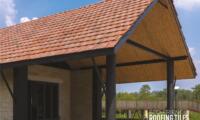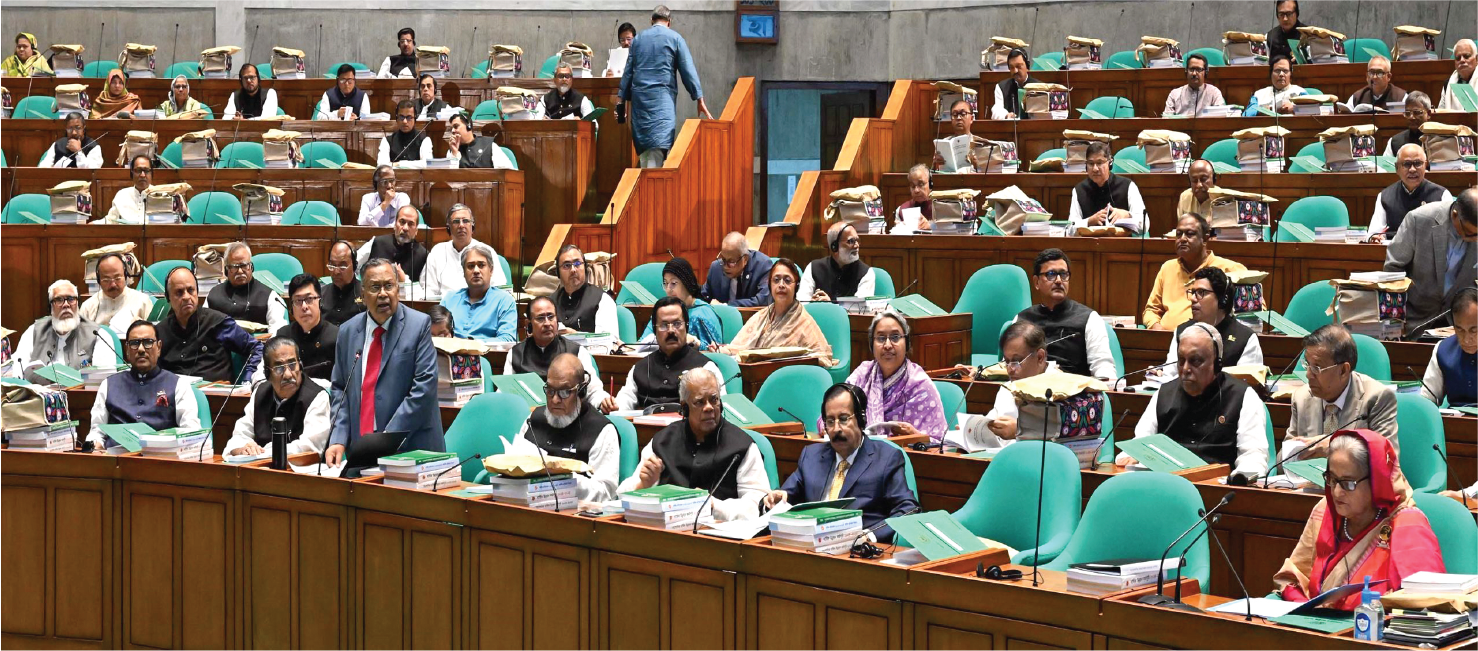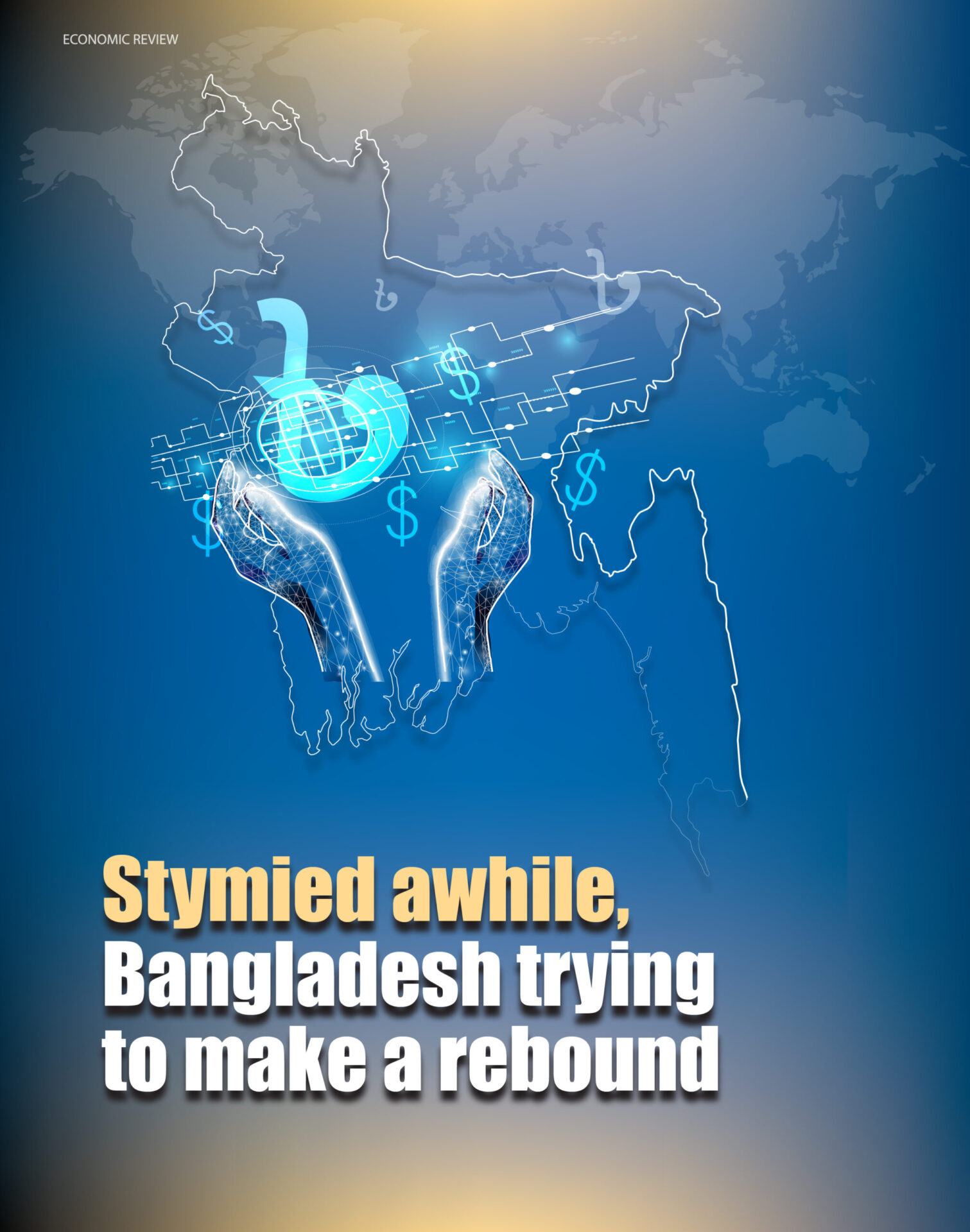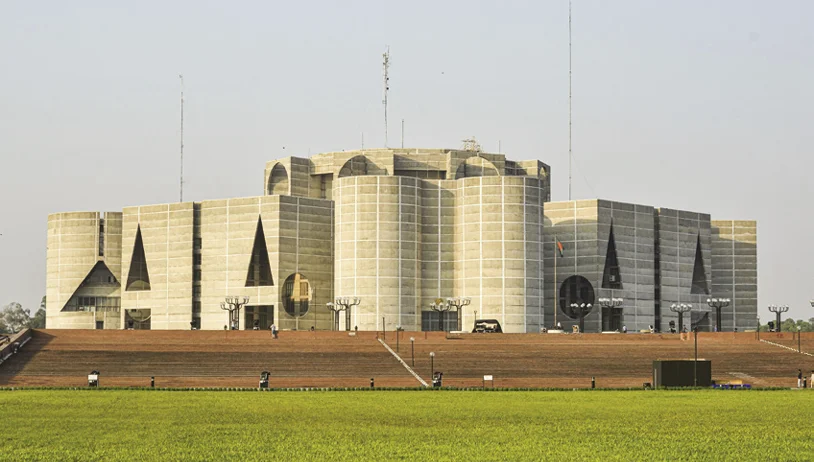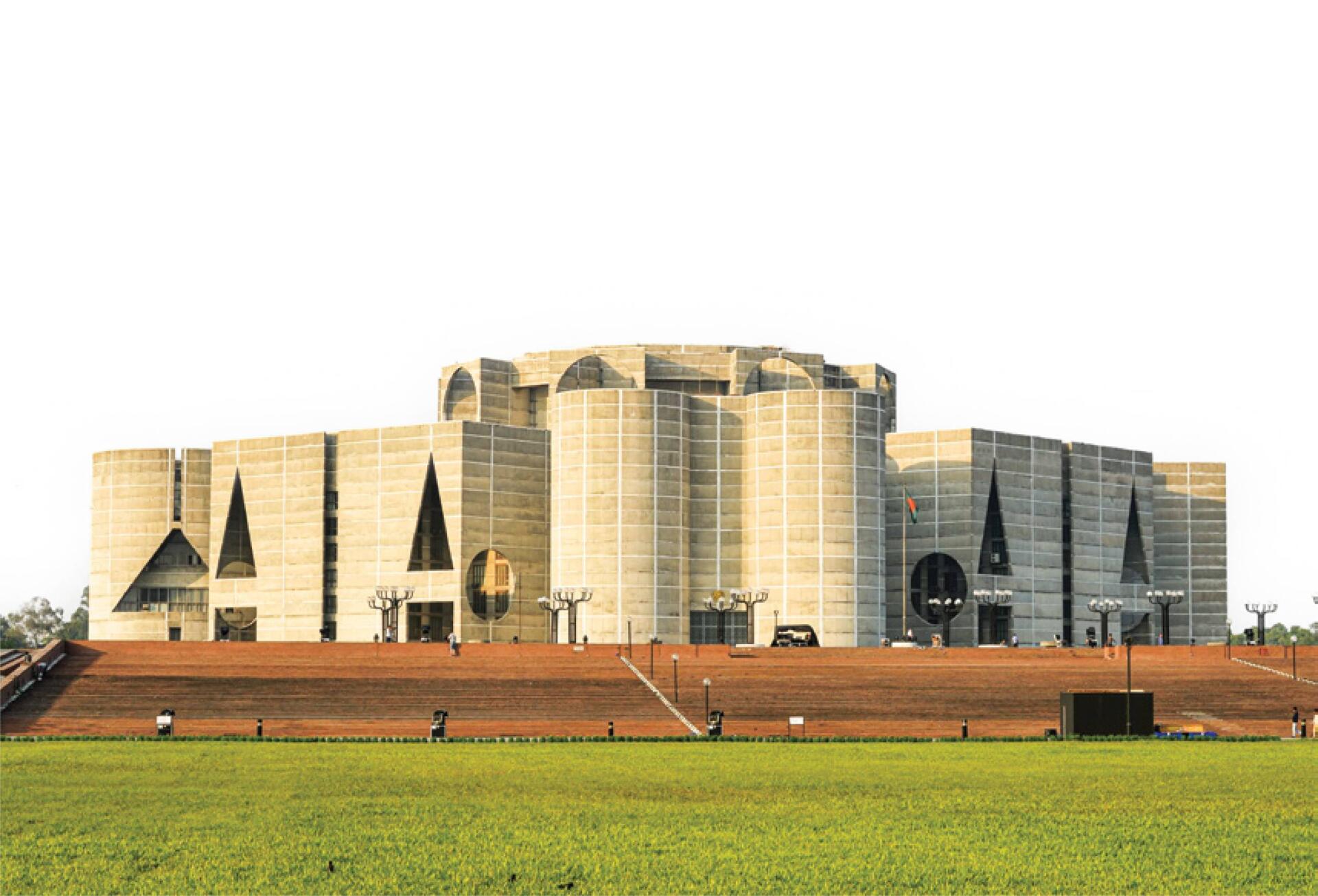
Finance Minister AHM Mustafa Kamal has authored a Taka 7,61,785 crore budget for the new fiscal year (2023-2024) with the vision of building a developed ‘Smart Bangladesh’ by 2041. The budget that was proposed in parliament in 1st June is 15.33 per cent higher than the revised budget of the outgoing financial year (Tk. 6,60,507 crore). “The budget Taka 7,61,785 is 15.2 per cent of the GDP (gross domestic product),”
he said while reading out 248-page budget speech. He proposed allocation of a total of Tk 4,36,247 crore for operating expenditures and Tk 2,63,000 crore as the Annual Development Programme (ADP). The target of attaining GDP growth was fixed at 7.5 per cent and containing inflation at 6 per cent. The overall deficit in the budget would stand at Tk 2,61,785 crore, which is 5.2 per cent of GDP. Out of the total deficit, Tk 1,55,395 crore would be financed from domestic sources and Tk 1,02,490 crore from external sources.
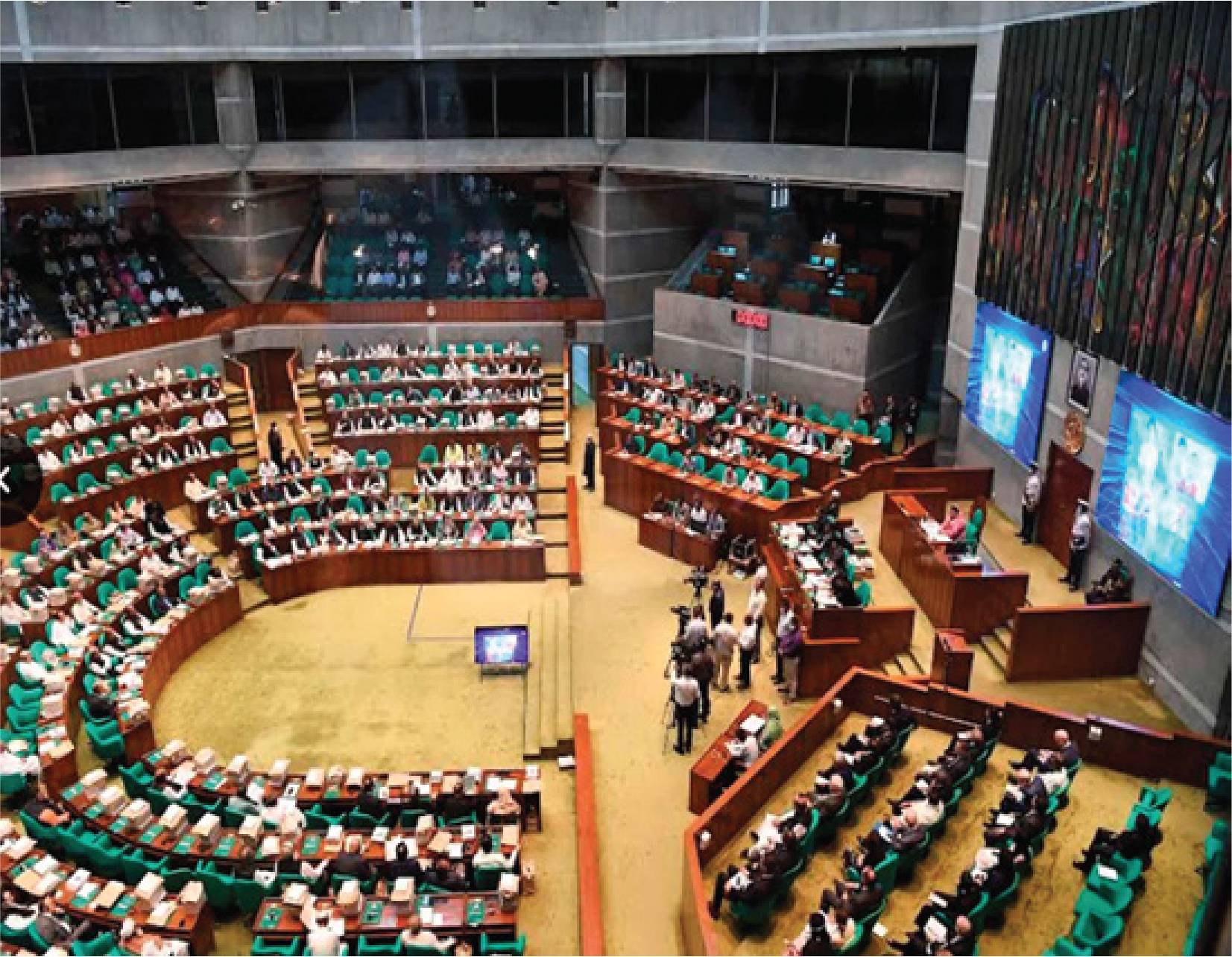
The finance minister set an estimated revenue earning target of Tk 5 lakh crore for the fiscal. “Out of this, Tk 4,30,000 crore would be collected through the National Board of Revenue and Tk 70,000 crore from other sources.” The Tax-GDP ratio is now only 7% and is proposed to be raised to 10% in the new budget. The finance minister wants to increase the percentage of direct tax to 45 per cent from 35 per cent. However, the budget practically depends more on indirect tax. The finance minister said that commission-based private collectors would be appointed for tax collection. The most talked about issue regarding the budget is meeting the conditions of International Monetary Fund (IMF), which granted a loan of US$ 4.7 billion at the beginning of this calender year. The global agency has put forwarded 38 conditions that have to be met in the next three and a half years for access to the loan. Nearly half of the conditions have to be implemented by the new fiscal year 2023-24.
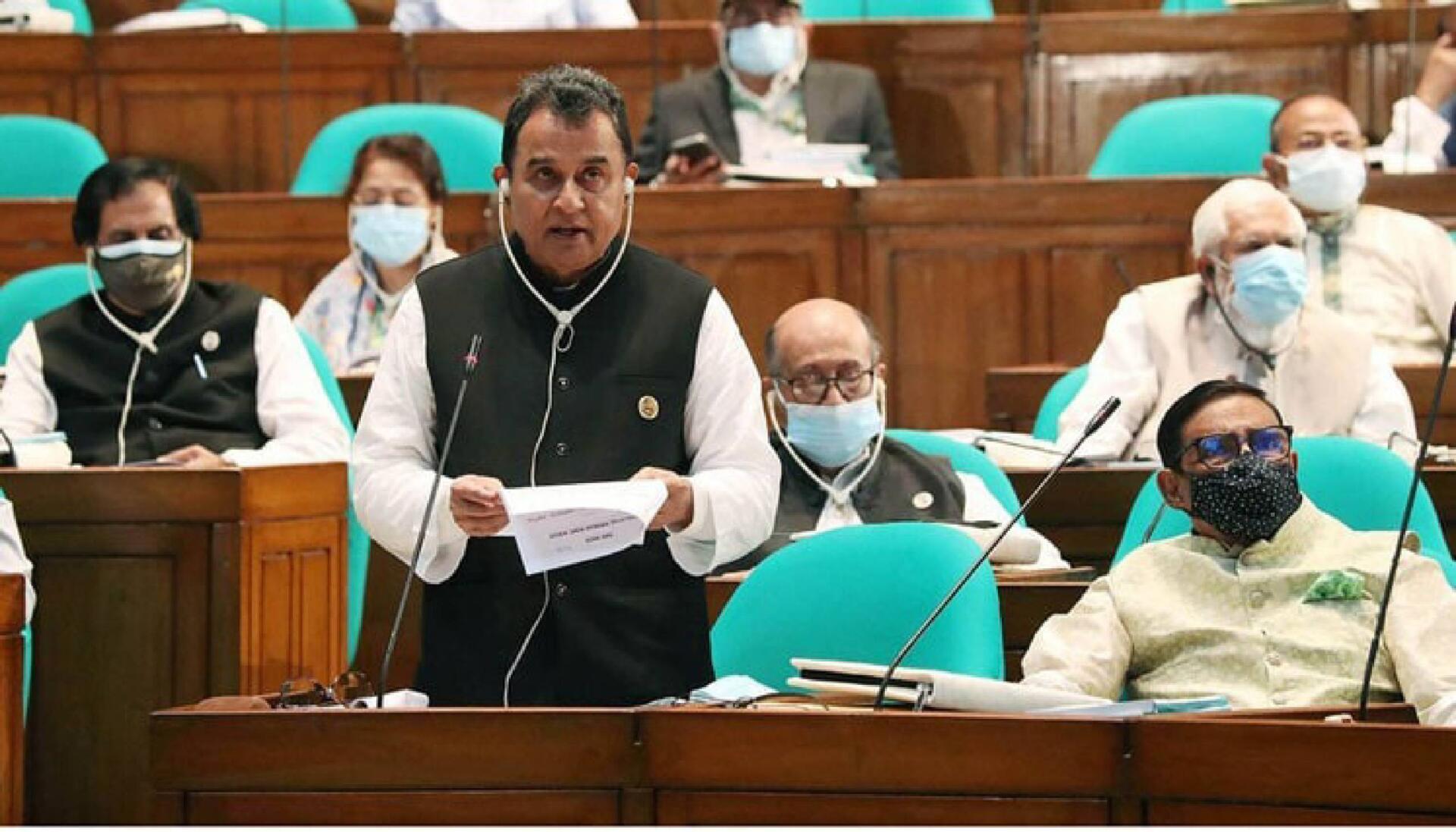
Budget meant for all – rich and poor : Kamal Finance Minister Mustafa Kamal said that the proposed budget has been awarded to all sections of people, including the rich and the poor, while all the projections made in the budget would be attained as like the previous years. He, however, categorically mentioned that the proposed budget had not been framed in line with the IMF suggestions. Kamal said the IMF usually gives suggestions to its member countries on maintaining balance sheet as well as properly maintaining income and expenditure accounts, which he thinks, is a good thing. He added that the IMF not only helps the member countries with credit support, but also extends support in project delivery in a flawless manner. “We can only take their (IMF’s) suggestions which we feel necessary.” The minister proposed imposing environmental surcharges on multiple vehicles. In the budget, the annual tax-free income threshold raised from Tk 300,000 to Tk 350,000 would give some relief to individual taxpayers. Some 50 types of fees would increase that include travel tax. The government estimated that private sector investment would increase to 27.4% of GDP in FY24 while it remains at 21.8% in FY23, meaning that an additional Tk 4,04,097 crore or 41.8% growth is required.

Tk 2.63 lakh crore earmarked for ADP The size of the Annual Development Programme (ADP) for the fiscal year 2023-24, is Taka 2.63 lakh crore with the highest allocation of Taka 75,945 crore (29% of allocation) for the transport and communication sector. The ADP for the fiscal year was approved at a meeting of the National Economic Council (NEC) earlier. Out of the original ADP allocation of Taka 2,63,000 crore, an amount of Taka 1,69,000 crore would come from local loan sources while Taka 94,000 crore from foreign loan and grants. Considering an allocation of Taka 11,674 crore for autonomous bodies and corporations, the overall ADP size has stood at Taka 2,74,674 crore. The overall ADP size include an allocation of Taka 8087 crore as foreign development assistance. The number of projects in the new ADP totaled 1,309. – 1,118 investment projects, 22 survey projects, 80 technical assistance projects and 89 projects from the autonomous bodies and corporations. According to the new ADP, the highest 10 allocation recipient ministries and divisions are the Power and Energy Division (Taka 44,393 crore or 17% of allocation), the Road Transport, Highways and Bridges Division (Taka 43,126 crore or 16.5%), the Railways Ministry (Taka 14,960 crore or 5.5%), the Local Government Division (Taka 40,503 crore or 15.5%), the Secondary and Higher Education Division (Taka 14,086 crore or 5%), the Ministry of Primary and Mass Education (Taka 12,018 crore or 4.5%), the Science and Information Technology Ministry (Taka 12,980 crore or 5%), the Health Services Division (Taka 12,209 crore or 4.5%) and the Ministry of Agriculture (Taka 10,707 crore or 4%). Ten projects with the highest allocations in the new ADP are the Rooppur Nuclear Power Plant Project (Taka 9,707 crore) followed by the Matarbari 2×600 MW Ultra Super Critical Coal Fired Power Project with Taka 9,081 crore, fourth Primary Education Development Programme (PEDP-4) with Taka 8,586 crore, Dhaka-Ashulia Elevated Expressway Construction project with Taka 5,870 crore, the Padma Bridge Rail Link project with Taka 5,500 crore, Hazrat Shahjalal International Airport Expansion with Taka 5,499 crore, Dhaka Mass Rapid Transit Development Project Line-1 with Taka 3,911 crore and Line-6 with Taka 3,425 crore, Bangabandhu Sheikh Mujib Railway (Jamuna) Bridge Construction project with Taka 3,778 crore.

Some industries may be affected The country’s businessmen are paying the price of the government’s policy on energy, said the deputy leader of opposition in parliament, former minister and industrialist Barrister Anisul Islam Mahmud. The business leaders are not generally viewing the budget in general as business-friendly. Taxes or duties on imports of raw materials and VAT in some sectors are increased, that may affect the prices of some products and these sectors may not attain the capacity to boost, they said. However, the gains tax on the sales of land and flats has been doubled in the budget. The import duty of about 12 items related to several industries including cement, stone, elevator, glass, switch-socket, cable, and kitchenware has been raised as well. As a result, the housing sector and related industries may be affected, said industry insiders. Alamgir Shamsul Alamin (Kajal), the President of the Real Estate and Housing Association of Bangladesh (REHAB), expressed fear of adverse effects on the economy as a result of the gains tax increase. He said, “The prices of land and flats have increased already due to the increase in the price of construction materials and other reasons.” The REHAB president called for revision of the measures to protect the housing sector. Otherwise, he cautioned, the prices of land and flats would increase. Because the proposed budget has said to increase income tax at source during land registration. Besides, additional duty has been imposed on 10-12 products. The price of these items would eventually fall on the flat buyer. The REHAB president suspected that if the prices of these products are not kept at a tolerable level, there would be a crisis in the housing industry. In particular, reduction of registration fee for old flats to strengthen the secondary market of flats and formation of special fund did not reflect any demand. He said, this sector developed by the dedicated efforts of private entrepreneurs is facing various obstacles recently. The country’s housing sector has gradually come under serious threat due to various taxation and lack of policy support. In the budget, increase in income tax at source during land registration, new additional tax on various construction materials including cement would push this housing sector towards further crisis. Due to decrease of FAR (floor area ratio) in new DAPs (Detailed Area plans of Dhaka City) and increase in price of construction materials, the sales volume has declined in the entire housing sector. “We fear the increase in taxes on various products will have an adverse effect on the country’s economy,” Mr Alamgir Shamsul Alamin said adding that in 2020-21 financial year, Tk 20,600 crore had come into the mainstream of the economy due to unquestionable investment opportunities.
The government received a revenue of over Tk 2,000 crore. “Each country is arranging how to keep foreign currency inside the country. So, if we can bring the undisclosed money into the mainstream economy in this situation, new jobs will be created along with revenue collection of the government and it will be easier to deal with the ongoing economic crisis.” In its budget reaction, Bangladesh Cement Manufacturers Association (BCMA), said that the price of cement would increase by Tk 25 per bag due to the increase in the import duty of cement raw materials. According to the organisation, “Due to the dollar crisis, cement clinker imports have decreased by more than half compared to the normal period. Imposing an additional duty on raw materials in such a crisis will put the sector in further peril.” Mohammad Shahidullah, Vice President of the BCMA, said to Ceramic Bangladesh, “It is beneficial for the industry and the consumer if the duty is kept low. Among the 12 countries in Southeast Asia, there is no country where taxes are as high as ours at the cement production and marketing level.” Bangladesh Ceramic Manufacturers and Exporters’ Association (BCMEA) made various demands on the occasion of the national budget. However, hardly such demands were reflected in the budgetary measures. However, a senior VAT official at the National Board of Revenue (NBR), said many sectors have been benefiting from the reduced VAT facilities for a long time.
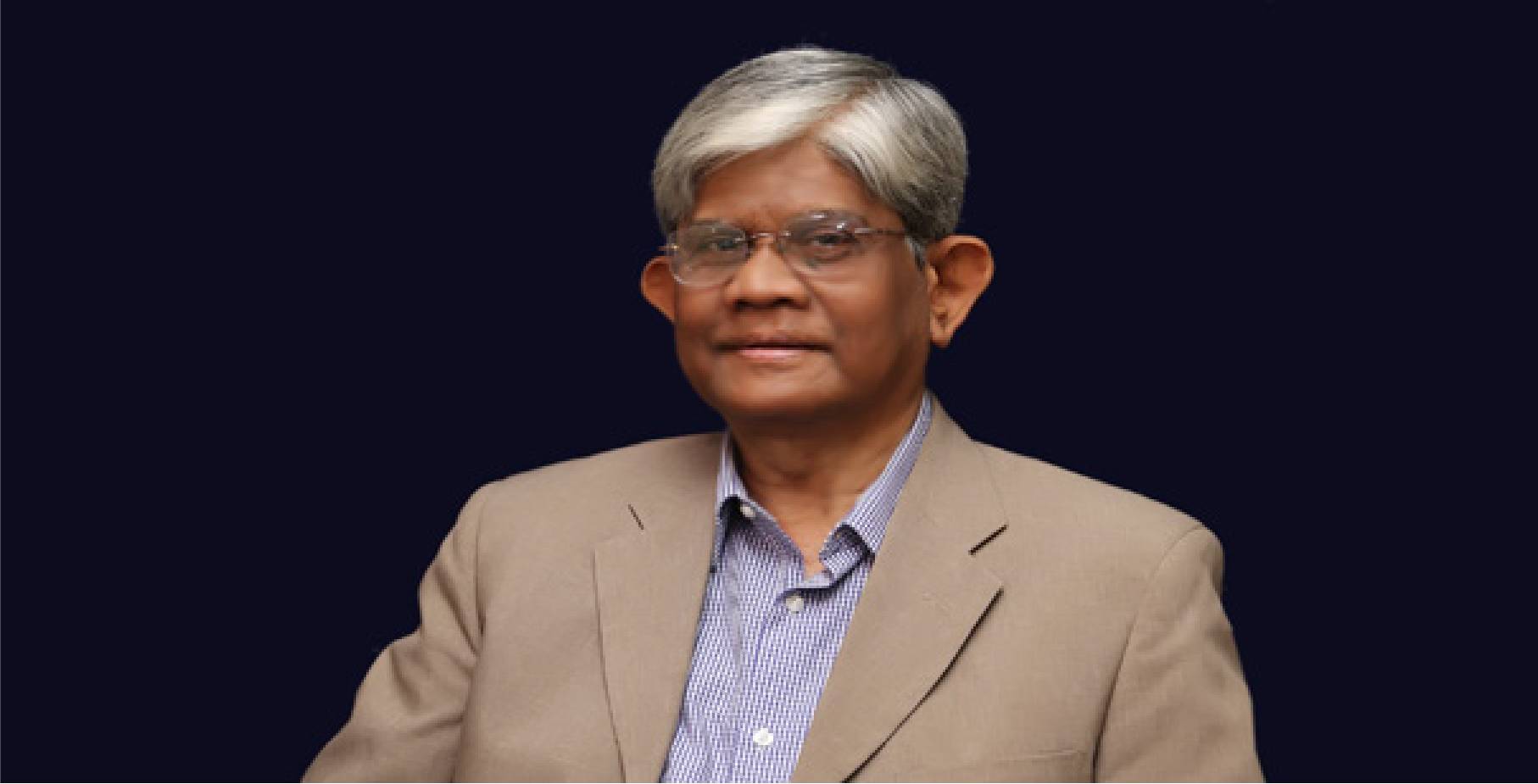
It is time for them to build up their capability after LDC graduation. That is why the VAT benefits for certain sectors have been reduced. Through this budget, a message has been given that their protection in the mid-income country may decrease further and they have to acquire their own capacity, the official added. Economist Dr Ahsan Habib Mansur thinks through this initiative, local industries would start preparing to face the post-LDC challenges. Zaved Akhtar, the CEO of Unilever, said, “If this VAT facility is cancelled, the prices of the products might increase.” Rupali Chowdhury, the managing director of Berger Paints Bangladesh Limited, said, “It is not the right time to hike taxes as almost every business is now passing a very hard time and are incurring losses in the current economic situation.” “The initiatives taken by the government in the proposed budget and in the tax law will affect all types of investors,” said Naser Ezaz Bijoy, the president of the Foreign Investors’ Chamber of Commerce and Industry (FICCI).
The Metropolitan Chamber of Commerce and Industry (MCCI) has said that the implementation of the proposed national budget would face immense challenges amid the current economic climate. The government’s borrowing target from the banking system is set at Tk 1,32,395 crore with a 14.70 per cent increase from the revised budget of Tk 1,15,425 crore in FY23. The chamber identified a double bind scenario associated with the government’s bank borrowing. An increase in borrowing from the banking system could crowd out private-sector investors and lead to fund shortages, it warned. Furthermore, if the government resorts to borrowing from the central bank, inflationary pressures are likely to escalate. Budget 2023-24: Financial debt-trap for bail out Former governor of Bangladesh Bank, Dr Salehuddin Ahmed, thinks that the situation that has been created in the field of foreign trade is unprecedented. The main challenges of the economy are depletion of reserves and exchange rate fluctuation. At the beginning of the previous financial year, the foreign exchange reserves was about US$ 42 billion. It has gradually come down to $29 billion in a year. On the other hand, on the first day of the fiscal year, the country’s exchange rate against USD was Taka 89. Now at the bank, every dollar was traded at Taka 109.
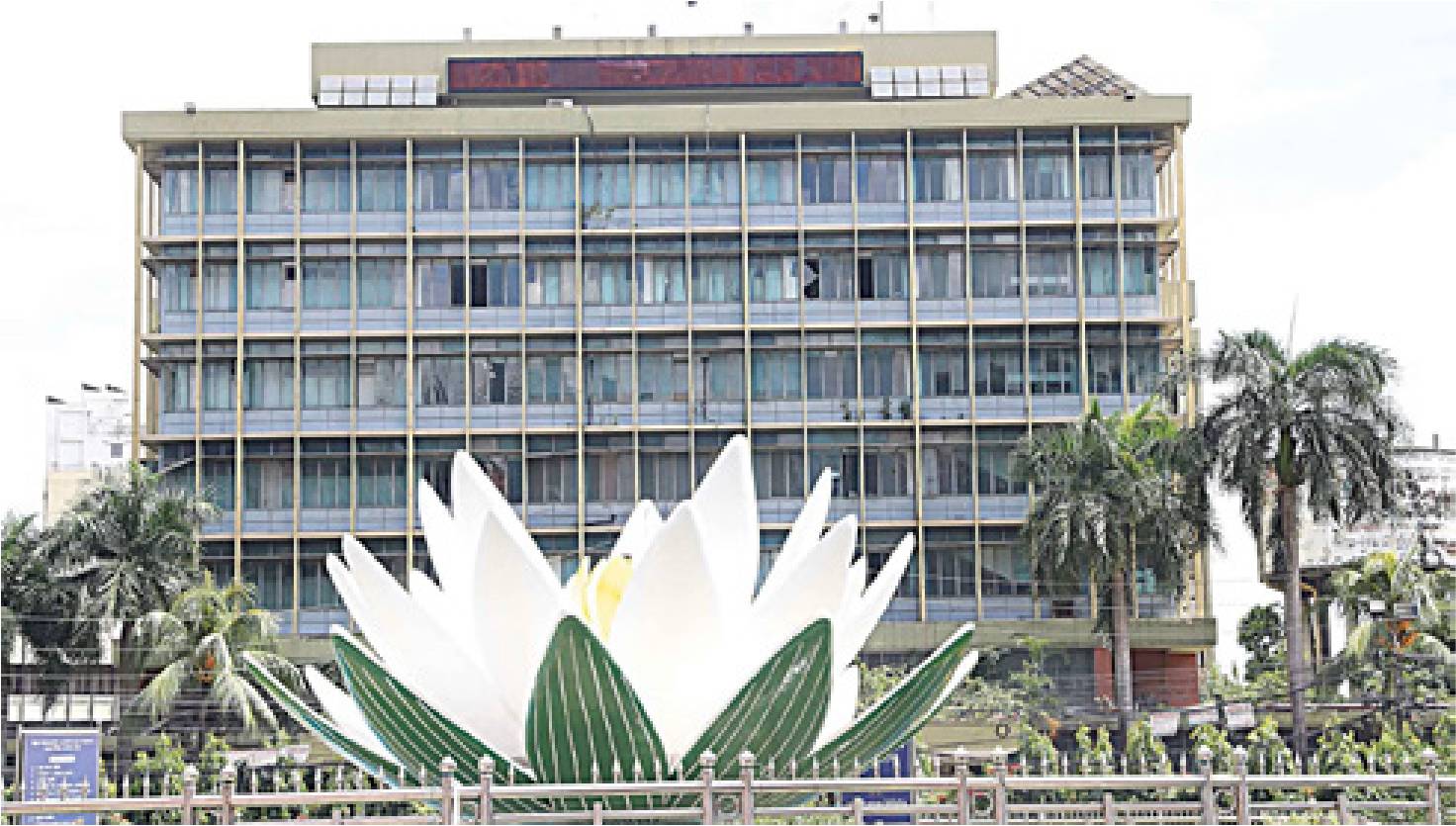
The value of the Taka has decreased by 23 per cent against the dollar. In the history of the country, such reserve depletion and currency depreciation are unprecedented. Dr Salehuddin Ahmed told Ceramic Bangladesh that energy and power crisis made public life unbearable; irrigation, industrial production and manufacturing were affected badly. Dollar crisis forced decline in imports escalating costs and delaying exports. The budget failed to address the ongoing crisis, let alone curbing inflation and price hike of daily commodities. He maintained that bank loans should not be taken in any way to implement the budget. An amount of around $76 billion, equivalent to constructing 25 Padma bridge, of the budget is largely based on debt and deficit which have to be covered through loans from both domestic banks which are already in liquidity crisis and from international creditors like IMF, the World Bank and the ADB. For track record of revenue collections this year and of previous years, it is highly unlikely for the NBR to collect more than $40 billion, meaning almost 50% deficit budget is nothing but a blunder. Both the ADP and budget deficit are same. Not many initiatives to curb inflation Dr Zahid Hussain, the former lead economist of the World Bank’s Dhaka office, said the new budget has not prioritised the issues that demanded special attention during the dollar crisis and high inflation rate. The budget also lacked the scope to bring in reforms. Overall, the budget is expansionary in nature, as the deficit is about Tk 2.62 trillion. This proposed budget would have been helpful for growth had there been $48 billion as forex reserves like before. For months the inflation rate is over 9.5 per cent and the dollar exchange rate is gradually rising. If the calculation of Bangladesh Bank is accurate, the usable sum of reserve could be $20 billion, which is much less than the amount IMF put for as a loan condition. In such a context, expansionary budget may not be propitious. A large amount of the deficit was financed by printing money by Bangladesh Bank. If this trend continues, that would be extremely dangerous for the inflation rate. If the banking funds were injected into businesses, that would have created jobs, contributing to higher growth rate. At the same time, the amount of defaulted loan is also increasing. Job creation: How much FY24 budget will do Experts believe that the FY24 budget lacked effective initiatives of job creation. “The issue of employment generation was not reflected properly in this year’s budget. There were no major initiatives for the unemployed, especially graduates. We just heard about the continuation of old initiatives. This is not enough at all,” said Dr Khondaker Golam Moazzem, research director at the Centre for Policy Dialogue (CPD). The government had the opportunity to fight inflation through rapid employment generation, but it did not happen, he added. Monetary Policy 2023 Will it curb inflation? Experiencing tough inflationary pressure, the central bank has recently announced the Monetary Policy Statement (MPS) for FY 2023-24 which drew special attention due to the recent circumstances. The Monetary Policy Statement (MPS) did not sufficiently address the crisis. Many other economies are experiencing surging inflation simultaneously being pushed by cost, not pulled by demand. But to increase the interest rate the central bank lifted the previous 9%-6% caping. The central bank’s move is aimed at implementing a unified and market-driven exchange rate regime, putting an end to multiple exchange rate mechanisms to alleviate pressure on the country’s forex reserves, increasing liquidity in commercial banks and fulfilling one of the IMF’s conditions to qualify for a $4.7 billion loan package approved in January. The Governor of Central Bank Mr. Abdur Rouf Talukder said the monetary policy is contractionary. It has been formulated keeping in mind the high inflation and dollar exchange rate pressures, decline in reserves, current account deficit, high non-performing loans, liquidity crunch and high interest rates elsewhere. Abdur Rouf Monetary Policy 2023 Will it curb inflation? Experiencing tough inflationary pressure, the central bank has recently announced the Monetary Policy Statement (MPS) for FY 2023-24 which drew special attention due to the recent.




